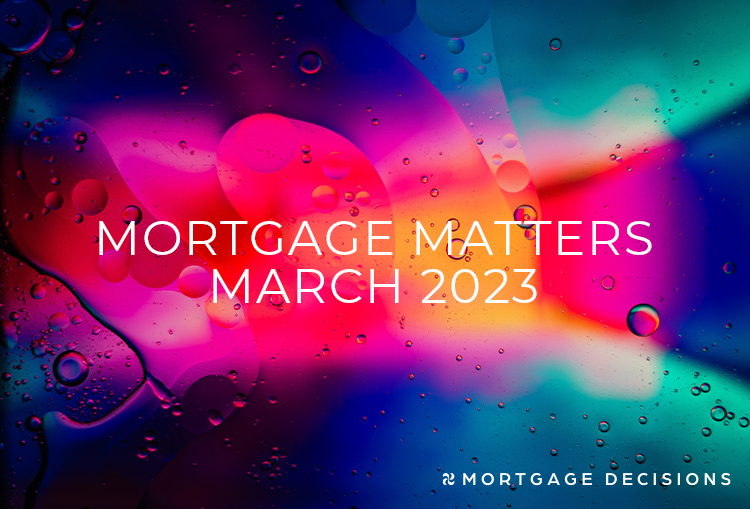- Mortgages
Mortgages
Bad Credit Mortgages
- Shared Ownership
- Insurance
Insurance
Life Insurance for Families
Life Insurance for Seniors
- Specialist lending
- About
- Events

The housing market and the economy have always been inextricably linked, a relationship that was reaffirmed following the largely unprecedented market reaction to the mini-budget last October. As mortgage rates rose to over 6%, the sales market stalled with mortgage approvals in the final month of 2022 at their lowest since the Global Financial Crisis.
The start of 2023 has however proved calmer economically than many predicted, forecasts for the current outlook for 2023 suggest any economic downturn is likely to be shallower and shorter than initially predicted. Indeed, the latest figures for economic growth indicate that the UK avoided recession in the final quarter, the latest economic index suggesting a return to private sector growth in February, with business activity at an eight-month high and manufacturing output at a nine-month high (S&P Global/CIPS Flash UK PMI). This is yet to feed into official economic data but should do so prior to the Chancellor’s Spring Budget set for Wednesday 15th March.
Official data also indicates UK consumer confidence registered a +7 uptick in February (GfK). This represents the biggest monthly improvement in nearly two years and although firmly in negative territory, it is the most positive reading since April 2022. Consumer confidence in the country’s economic situation over the coming year registered a month-on-month +11 improvement, with households’ assessment of their own personal finances over the next year registering a 9 point rise.
The housing market likes sentiment and certainty and with reports from many commentators including Zoopla and Rightmove that the start of 2023 has seen demand in line with pre-pandemic markets of 2017-2019, it is clear the market is still transacting. Sales volumes for January, as released by the HMRC, were on par with January 2019, with a greater choice of properties available for prospective purchasers in many areas as supply to the market has improved.
Mortgage approvals have long been considered a forerunner of market activity. Official data released by the Bank of England for January 2023 indicates just shy of 40,000 mortgages were improved, the lowest in January since 2009. However, we expect these will start to edge upwards with product choices on the rise and competition between lenders increasing. According to Moneyfacts, there are currently more than 4,300 different deals available, the first time since August 2022 that product choice has risen above 4,000. Competition between lenders in the mortgage market is good news for prospective buyers and home movers. The average interest rate charged on both two-year (5.44%) and five-year deals (5.2%) fell in February for the third month in succession. Moneyfacts report these latest falls put the cost of both products back to October 2022, despite the fact that the Bank of England has raised the base rate of interest by 1.75% since that time. Product availability has risen across all deposit levels, with close to 150 deals available for those with a 5% deposit, and nearly 540 for those with a 10% deposit. For those requiring a loan-to-value of 60% or less, deals with rates below 5% are now available.
The Bank of England’s Monetary Policy Committee is next to meet on 23rd March, just over a week after the Spring Budget. Reuters report the Bank of England Governor, Andrew Bailey has cautioned against assuming a March rate rise, although many markets are anticipating a 25 base point hike.
Current fixed-rate mortgage rates available via Mortgage Decisions start at 4.08% (2-year, Barclays), 4.29% (3-year, HSBC) and 3.99% (5-year, Halifax and Danske Bank). Tracker rates start from 4.14% (2-year, Barclays) and Buy to Let mortgages start at 4.24% (Tracker until May 2025, The Mortgage Works).
Disclaimer: The above is for information only. Independent regulated financial advice should always be sought when considering mortgage matters.
Your home may be repossessed if you do not keep up repayments on your mortgage.
There may be a fee for mortgage advice. The actual amount you pay will depend upon your circumstances.
The fee is up to 1% but a typical fee is £595.
